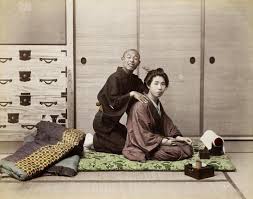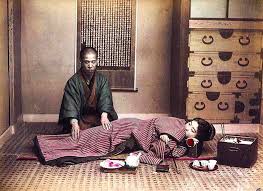
Anma Traditional Japanese Massage
Anma is an ancient style of Japanese massage which can produce powerful results. It involves stroking, kneading, pressure, vibration, percussion, and squeezing techniques.
While some of the techniques used in Anma may appear to be similar to the ones of Swedish massage, the major difference is the direction of massage strokes during the massage: Anma strokes are directed away from the heart (centrifugal), while Swedish massage’s strokes are directed towards the heart (centripetal). Anma originally came to Japan from China in the sixth century AD.
It was developed from Tui Na, a traditional Chinese massage method. Tui Na found its way to Japan during the Nara period (710-793), together with acupuncture and herbal medicine. During Shogun rule, Anma was integrated into martial art teachings.

Samurai were not only educated in the martial arts but also the healing arts as well. Fellow warriors could assist injured comrades in the field. The same acupoints used to disable an opponent can also be used to heal. Medical practitioners learnt to integrate these techniques specifically developed for samurai needs into Chinese Anmo and reached its height of popularity during the Edo period (1602-1868).

Unlike most Western and European massage, oils and lotions are rarely used and traditionally performed fully clothed, giving the receiver an increased sense of security. It is, however, perfectly suited for bare-skin application. Utilizing nine foundation techniques, the practitioner can warm, knead, stretch, and move tissue and bones back into proper alignment and working order. In this sense, it is very similar to Thai traditional massage. Anma continues to be practised independently or along with shiatsu and massage therapy in Japan by practitioners who the Japanese Ministry of Health and Welfare licenses.

The main characteristics of Anma Japanese massage are that it is very relaxing, therapeutic, only moderately intense, no oil is used, and you don't need to undress.
Can you get an Anma massage in London?
We have a Japanese therapist. Maybe she can?
Monday 11 September 2017 by Webmaster
